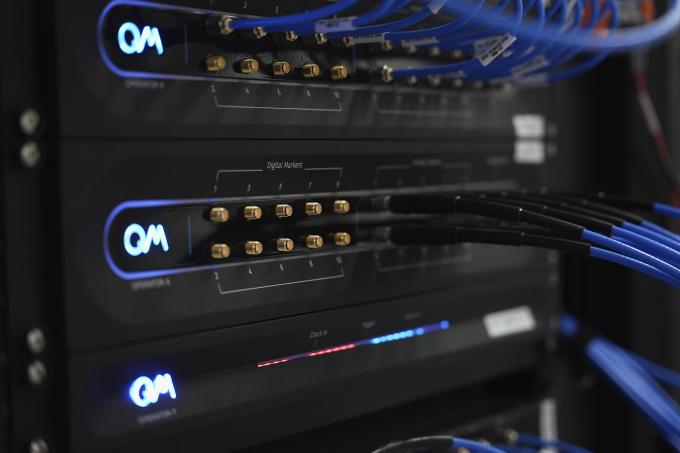About a year and a half ago, Quantum Machines and Nvidia teamed up to enhance quantum computing capabilities. Their collaboration is now showing promising results, bringing us closer to reliable quantum computers. They demonstrated how an off-the-shelf reinforcement learning model on Nvidia’s DGX platform could better control qubits in a Rigetti quantum chip. Despite being in the early stages, this approach aims to improve the calibration of qubits, which is crucial for error correction. Even small improvements in calibration can lead to significant gains in performance. As they continue this partnership, they plan to create more open-source tools to help researchers advance quantum computing technologies further.
Quantum Machines and Nvidia are making strides in quantum computing through an innovative partnership that began over a year ago. This collaboration combines Nvidia’s powerful DGX Quantum computing platform with Quantum Machines’ advanced quantum control technologies, moving the industry closer to achieving error-corrected quantum computers.
Recently, the two companies demonstrated their ability to improve qubit control on a Rigetti quantum chip. By using a standard reinforcement learning model on Nvidia’s platform, they could better calibrate the quantum system, making it more reliable for computations. Yonatan Cohen, co-founder and CTO of Quantum Machines, emphasized the importance of using high-performance classical computing to improve quantum processors, particularly in maintaining calibration over time.
Calibration is crucial because it ensures the qubits operate effectively. While many think of calibration as a one-time task, the reality is that quantum systems frequently drift, which affects performance. Continuous recalibration can enhance the system’s fidelity long-term, essential for effective quantum error correction.
Nvidia’s product manager for quantum computing, Sam Stanwyck, pointed out that the process of calibrating qubits in real-time involves intense computation, and only Nvidia’s DGX system can handle the minimal latency required. A small improvement in calibration can lead to significant advancements in error correction, showcasing the exponential benefits of this work.
The teams have just scratched the surface of what they can achieve, aiming to create more open-source tools for developers to use in quantum computing. As they continue to refine their techniques and incorporate more advanced algorithms, they are optimistic about solving key challenges in the field. With Nvidia’s upcoming Blackwell chips, even greater computing power is on the horizon for this innovative project.
In summary, the partnership between Quantum Machines and Nvidia is paving the way for advancements in quantum computing, particularly in areas crucial for performance and error correction. They are committed to making their findings accessible, furthering research and development in the quantum technology space.
Tags: Quantum Computing, Quantum Machines, Nvidia, DGX Quantum, Quantum Error Correction, Reinforcement Learning, Qubit Calibration
What is the goal of Quantum Machines and Nvidia’s work together?
They want to improve quantum computers by using machine learning to fix errors, which helps make them more reliable.
How does machine learning help quantum computing?
Machine learning can analyze and predict errors in quantum systems, allowing for better error correction and improved performance.
What is an error-corrected quantum computer?
An error-corrected quantum computer is designed to fix mistakes that happen during calculations, making it more trustworthy for complex tasks.
Why is error correction important in quantum computing?
Error correction is crucial because quantum bits (qubits) can easily lose their information due to noise and other issues. Fixing these errors ensures accurate results.
Can this technology be used in everyday applications?
Yes, as quantum computers become more reliable with better error correction, they can be used in various fields, like medicine, finance, and materials science for advanced problem-solving.






